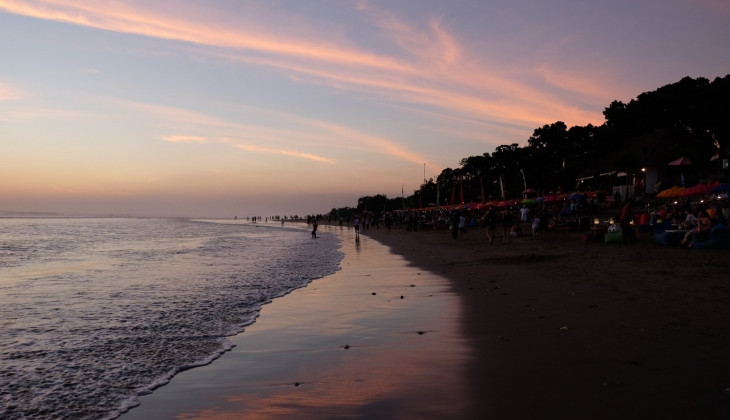Tourism is still the largest provider of job opportunities in Bali and contributes highly to the Balinese economy in general. Mass tourism attractions still dominated the development of tourism in Bali in the last two decades (2000-2019). One of the most prominent trends is increased new tourism attractions, often called “nature-based tourism attractions”. Almost in every strategic area, tourist attractions are transforming from ordinary cultural attractions into thematic areas, such as parks that present a natural atmosphere.
Nevertheless, behind the hustle in its tourism development, Bali as a tourism destination has serious problems, especially in balancing natural resources. This is in the form of less even distribution of the ‘tourism cake’ between regions and levels of society and reduced social solidarity.
The National Tourism Seminar Series # 11 held by the Doctoral Study Program of Tourism Studies, UGM Postgraduate School raised this topic on Tuesday (23/3). The theme was “The Dynamics of Tri ning Tri Ecotourism in Bali.”
This seminar presented the speaker Dr. I Nyoman Sukma Arida from the Faculty of Tourism, Universitas Udayana. Sukma is also an alumnus of the doctoral program in Tourism Studies of UGM SPS. Meanwhile, Prof. Sudarmadji, a professor of the UGM Faculty of Geography attended as a discussant, and Dr. Bayu Sutikno, a lecturer at UGM FEB, moderated this event.
In his presentation, Dr. Sukma said that it is difficult to find a form of ecotourism in Bali amid such a situation. However, according to him, since the 1990s several people have consistently fought for developing ecotourism in Bali — Village Ecotourism Network. Recently, several tourist villages have also made conservation aspects the basis for their development.
Furthermore, Sukma explained that the findings of his research aimed at understanding the typology of ecotourism in Bali and the dominant forces behind the emergence of various types and forms of ecotourism products. Ecotourism in Bali has three types of typologies: investors, government, and society. “Each type of ecotourism has different characteristics based on products, development strategies, patterns of community involvement, and tourist character,” he explained.
Apart from that, Sukma also highlighted the existence of pseudo-ecotourism in Bali. In pseudo-ecotourism, tourism activities look like eco-tourism in general, but the role of local communities around ecotourism objects is marginalized.
He also gave a case example in Taro Village, which emerged as the Tourism Village Movement as a subtle resistance or counter-discourse on the hegemony of elephant tourism or as a representation of big investors. “Taro Village is a village with a hybrid ecotourism type, namely a combination of investor-government-community,” he said.
Therefore, Sukma hopes that the Covid-19 pandemic can become a reflection for tourist destinations in Bali to see whether ecotourism or pseudo-ecotourism is the right step to take. This is because the tourism sector is taking a break during this pandemic, so this is the right time to reflect on future steps.
As the presenter, Prof. Sudarmadji highlighted the importance of the sustainability of tourism villages or ecotourism destinations. He said problems could occur from management or tourists. Therefore, he advised us to always take into account environmental conditions when developing tourism objects by considering the capacity to prevent overcapacity
“Take care of the environment, do not only focus on increasing income and welfare. Exceeding carrying capacity and capacity of the environment will create greater losses in all aspects,” he concluded.
Source: https://www.ugm.ac.id/id/berita/20911-bali-perlu-merefleksikan-tipologi-ekowisatanya



